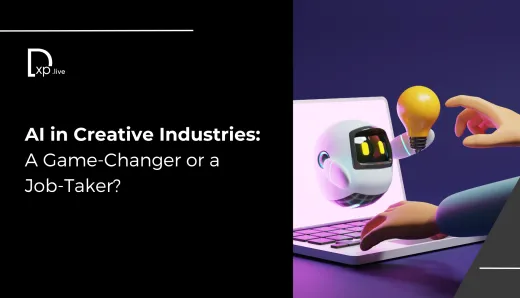AI Ethics: The Trillion-Dollar Mistake Most CEOs Are Making Right Now

In the landscape of artificial intelligence, generative models have emerged as a transformative force, reshaping industries and redefining the boundaries of technological innovation. As C-suite executives, understanding the ethical implications and challenges associated with these powerful AI tools is no longer optional—it's a strategic imperative.
The Rise of Generative AI: A Double-Edged Sword
Generative AI models, such as GPT (Generative Pre-trained Transformer) and its successors, have demonstrated unprecedented capabilities in natural language processing, content creation, and problem-solving. These models can generate human-like text, create art, and even write code, opening up new avenues for creativity and productivity.
However, with great power comes great responsibility. The same capabilities that make generative AI so promising also pose significant ethical challenges. As leaders, we must navigate these choppy waters carefully, balancing innovation with responsibility.
Ethical AI Development: Navigating the Challenges of Generative Models
1. Bias and Fairness- Generative models are trained on vast datasets, which inevitably contain societal biases. These biases can be amplified and perpetuated by AI systems, leading to unfair or discriminatory outcomes. Addressing this challenge requires a multi-faceted approach:
- Diverse and representative training data
- Rigorous testing for bias across different demographic groups
- Implementing fairness constraints in model development
2. Misinformation and Deep Fakes- The ability of generative AI to create convincing text, images, and videos raises concerns about the spread of misinformation and the creation of deep fakes. Combating this challenge requires:
- Developing robust detection algorithms
- Implementing watermarking techniques for AI-generated content
- Fostering media literacy and critical thinking skills
3. Privacy and Data Protection- Generative models often require vast amounts of data for training, raising questions about data privacy and protection. Key considerations include:
- Ensuring compliance with data protection regulations (e.g., GDPR, CCPA)
- Implementing robust data anonymization techniques
- Adopting privacy-preserving machine learning methods
4. Transparency and Explainability- As generative AI models become more complex, ensuring transparency and explainability becomes increasingly challenging. To address this:
- Invest in interpretable AI techniques
- Develop clear communication strategies for AI-driven decisions
- Foster a culture of accountability in AI development
5. Intellectual Property and Copyright- Generative AI's ability to create content raises complex questions about intellectual property rights and copyright. Navigating this challenge involves:
- Clarifying legal frameworks for AI-generated content
- Developing fair use policies for training data
- Implementing attribution mechanisms for AI-generated works
Strategies for Ethical AI Development: A Deeper Dive
As C-suite executives, implementing ethical AI development practices is crucial for long-term success and societal benefit. Let's explore key strategies in greater detail, focusing on actionable steps and their business impact:
Establish an AI Ethics Board
- Composition: Include diverse perspectives from legal, ethics, technology, and business units.
- Function: Regular reviews of AI projects, risk assessments, and policy recommendations.
- Impact: Ensures alignment between AI initiatives and corporate values, mitigating reputational risks.
Implement Ethical AI Guidelines
- Framework: Adopt or develop an AI ethics framework (e.g., IEEE's Ethically Aligned Design).
- Integration: Embed ethical considerations into your AI development lifecycle.
- Metrics: Establish KPIs for ethical AI, such as bias reduction scores or transparency ratings.
- Impact: Creates a standardized approach to ethical AI across your organization.
Invest in AI Education
- Executive Training: Implement AI literacy programs for leadership teams.
- Technical Upskilling: Provide advanced ethical AI training for technical teams.
- Company-wide Awareness: Develop general AI ethics courses for all employees.
- Impact: Fosters a culture of responsible AI development and use throughout the organization.
Collaborate with Stakeholders
- Industry Partnerships: Join AI ethics consortiums or establish partnerships with tech leaders.
- Academic Engagement: Collaborate with universities on ethical AI research.
- Policy Influence: Engage with policymakers to shape AI regulations.
- Impact: Positions your company as a thought leader in ethical AI, influencing industry standards.
Prioritize Transparency
- AI Disclosure: Clearly communicate when and how AI is used in your products or services.
- Decision Explainability: Implement tools that provide insights into AI decision-making processes.
- Public Engagement: Share your ethical AI initiatives through whitepapers or public forums.
- Impact: Builds trust with customers and stakeholders, differentiating your brand in the market.
Conduct Regular Audits
- Automated Testing: Implement continuous integration/continuous deployment (CI/CD) pipelines with ethical AI checks.
- Third-party Audits: Engage external experts for unbiased assessments of your AI systems.
- Bias Detection: Utilize advanced bias detection tools across different demographic groups.
- Impact: Identifies potential issues early, reducing legal and reputational risks.
Embrace Responsible Innovation
- Ethical Design Thinking: Incorporate ethical considerations into your innovation process from the outset.
- Scenario Planning: Conduct "ethical pre-mortems" to anticipate potential negative outcomes.
- Responsible Scaling: Implement gradual rollouts with close monitoring for unintended consequences.
- Impact: Balances innovation with risk management, ensuring sustainable growth.
Implement Technical Safeguards
- Data Governance: Establish robust data management practices, including data lineage tracking and quality assurance.
- Model Monitoring: Deploy AI model monitoring tools to detect drift and performance degradation.
- Federated Learning: Explore privacy-preserving techniques like federated learning for sensitive data.
- Impact: Enhances data security and model reliability, crucial for maintaining customer trust.
Develop an AI Incident Response Plan
- Rapid Response Team: Form a cross-functional team ready to address AI-related incidents.
- Playbooks: Develop detailed response plans for various AI ethics scenarios.
- Stakeholder Communication: Prepare templates for transparent communication during incidents.
- Impact: Minimizes damage from potential AI mishaps, demonstrating organizational preparedness.
Foster an Ecosystem of Ethical AI Tools
- Internal Development: Invest in creating proprietary tools for ethical AI development.
- Vendor Assessment: Carefully evaluate and select ethical AI tools and platforms.
- Open Source Contribution: Participate in or support open-source ethical AI initiatives.
- Impact: Equips your teams with cutting-edge tools for ethical AI development, potentially creating new revenue streams.
By implementing these strategies, you're not just mitigating risks—you're positioning your company at the forefront of responsible AI innovation. This approach can lead to enhanced brand reputation, increased customer trust, and potentially, a competitive advantage in the AI-driven marketplace.
Remember, ethical AI development is not a one-time effort but an ongoing journey. As AI technology evolves, so too must our approaches to ensuring its responsible development and deployment. By staying committed to these principles and strategies, you can lead your organization confidently into the future of AI.
The Path Forward: Leadership in Ethical AI
As leaders in the AI revolution, C-suite executives have a unique opportunity—and responsibility—to shape the future of this transformative technology. By prioritizing ethical AI development, we can harness the full potential of generative models while mitigating risks and building trust with our stakeholders.
The challenges are significant, but so are the opportunities. By embracing ethical AI practices, we can drive innovation, enhance competitiveness, and contribute to a more equitable and sustainable future.
As we navigate the complexities of generative AI, let us remember that ethical considerations are not obstacles to progress, but rather the foundation upon which lasting success is built. By leading with integrity and foresight, we can ensure that the AI revolution benefits not just our organizations, but society as a whole.
The future of AI is in our hands. Let's shape it responsibly, ethically, and with unwavering commitment to the greater good.




